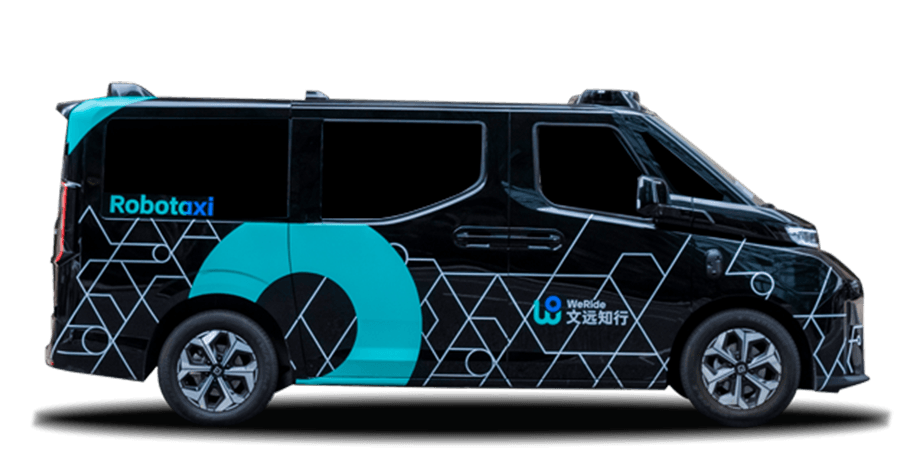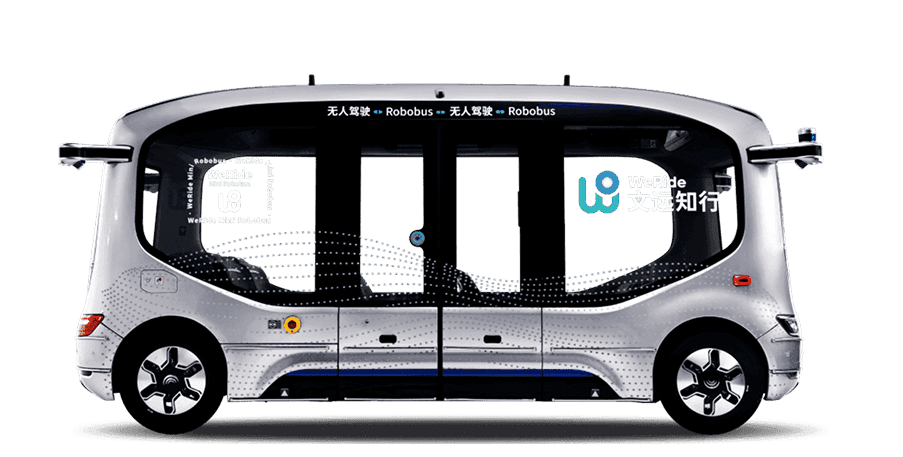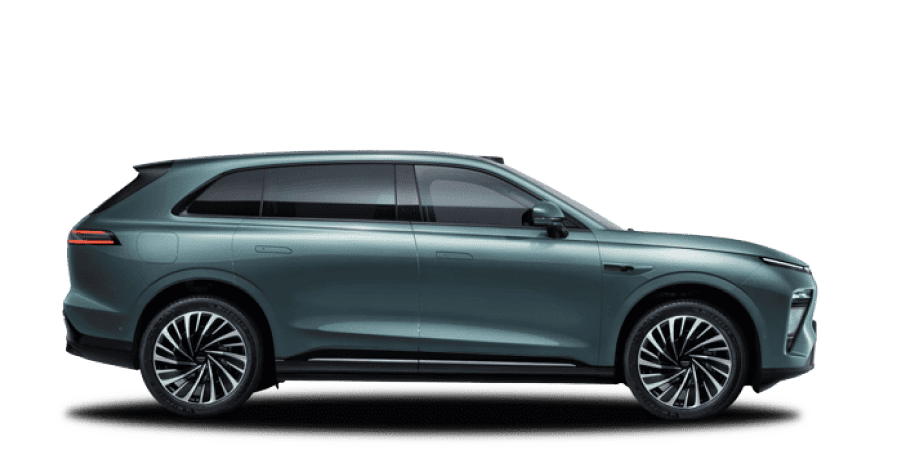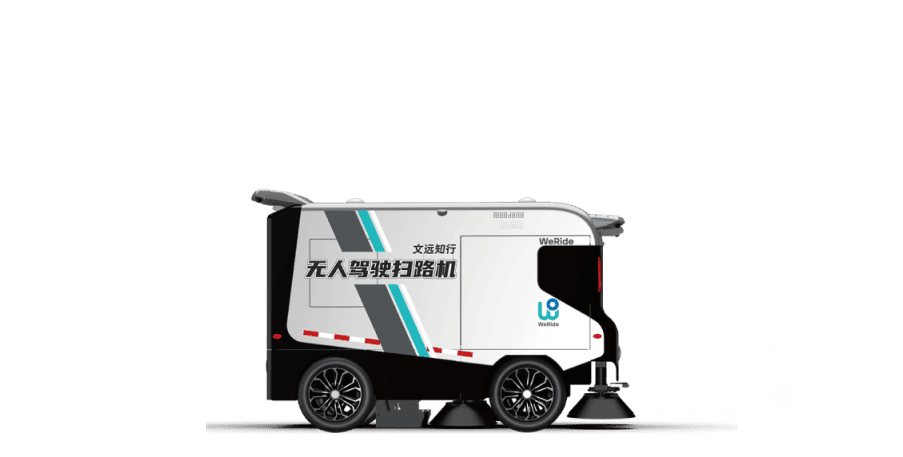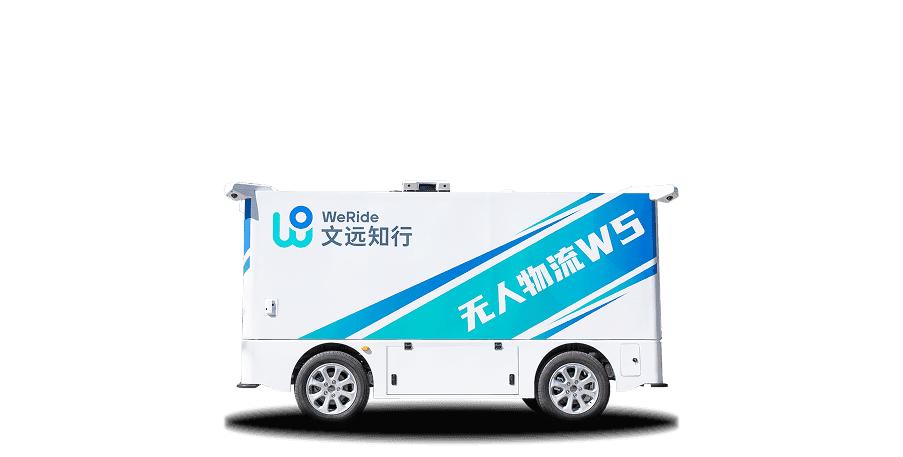On August 1, 2025, Tony Han, Founder and CEO of WeRide, appeared on CNBC's China Connection, a program delivering in-depth analysis of China's economy, markets, and its relationship with the global landscape. During the interview, he discussed WeRide's strong Q2 2025 earnings and shared insights into the company’s expansion plans and tech innovations.
The following is the full transcript of the interview.
CNBC: If we could start with the Q2 loss — you saw that narrow. I want to just get an update on your path to profitability. What is the outlook for the company?
Tony: First of all, I think our path to profitability is quite clear. I want to share with you a little bit of numbers first. We reported 17.8 million revenue, year-over-year revenue growth of 60.8%. And we also have a profit growth of 40.6% in the second quarter of 2025. In terms of major revenue, our Robotaxi revenue has grown an astonishing 836.7% year-to-year. So these are all very surprising, good numbers. And also, we have relatively low expenses; our adjusted net loss for the second quarter of 2025 is relatively low. And so for the past gross profit profitability, it's always like this. We focus on developing the best technology for autonomous driving and keep on doing international expansion. So far, WeRide is the only company in this world have autonomous driving products with a driver list permit in six countries. So we will keep our competitive edge. And we have big market potential. And I think in the next few years, we will achieve profitability.
CNBC: You mentioned autonomous driving permits across six countries. What new markets will you be tapping on and how do you go about choosing those markets?
Tony: Very good question. We are aiming at growing the Middle East market and also teaming up with Uber. We plan to expand to 15 cities, including Europe, Southeast Asia and Japan. For picking out potential markets, we are here to fill the gap between the shortage of drivers and the increasing demand for the drivers. Therefore, any markets with aging problems or facing shortage of bus drivers or taxi drivers, and with a good, unique economy, are our potential markets.
CNBC: Do you need the partnership with Uber in order to enter new markets?
Tony: That's a very good question. We actually team up with Uber to enter into new markets. It depends on which region you are trying to enter, right? For example, for Southeast Asia, we have some partners that are equally important to Uber, but Uber is definitely a global partner. We are very honored, and we are very glad, to team up with Uber for potentially Middle East and European markets. So I think it's a market driven approach. CNBC: Which market is the most mature when it comes to L4 autonomy?
Tony: Several of them are quite mature. It's actually related to regulatory policies. And it's actually dynamic. Whether it's mature depends on several factors — that is public acceptance, regulatory policy, and also the unit model. So these are complicated factors and also dynamic. One market I want to point out — Middle East market is a very promising market, Japan market is great, and Southeast Asia including Singapore. I'm very glad to be selected as a member of the autonomous driving steering committee in Singapore. Singapore's a great market. Europe is also potentially a very huge market. China is a great market. I think they are all very promising.
CNBC: When you mentioned China, there is this policy of anti-involution on the EV market, the impact from the EV price war. Does it impact WeRide at all?
Tony: I think EV is related, but the key driver for AV is different from EV. AV addresses the shortage of bus drivers or taxi drivers or sweeper drivers. Therefore, AV is used to fill out the shortage of human labor. For EV, it is mainly to compete against combustion engines, in terms of cost and environment issues. So I think there are two two different categories. And my personal view is AV is a bigger revolution, so I'm so excited with the coming age of autonomous driving. Actually, it's already there, right? So in the big scope of AGI, I think AV is part of the big, very grand, very exciting revolution. So we are working hard to push forward for AV. And recently we just released our newest developed HPC platform, based on NVIDIA's platform. This is the first auto-grade computing platform for large scale deployment with a computational power of 2,000 TOPS. I'm very excited about WeRide's breakthrough in this part. So I think AV is a much much bigger leap forward. And the logic behind it is different from EV and there are only very few companies in this world that are capable of deploying AVs in their products. WeRide is definitely one of them.
CNBC: Now you're the world's first mass produced L4 autonomous vehicle that runs on the HPC 3.0 platform powered by NVIDIA's Drive AGX. We've heard NVIDIA being in the news. It was asked by Chinese officials about any backdoor security issues. I want to ask about the impact on chips and export controls from the United States. Is there any impact at WeRide?
Tony: First of all, we have a very good relationship with NVIDIA. NVIDIA is WeRide's early investor. Back in 2017, they have already invested in us due to the advanced technology of WeRide. In terms of export control of the chips, we are doing AVs in different market and different regions. Number one, we need to really follow policy compliance. We want to make sure we respect the local laws. At the same time, we also respect data sovereignty a lot, so we want to make sure we keep to data privacy, respect data sovereignty, and for different markets, we have different policies to pick up chips. So first of all, the number one rule — it has to be accepted by the local government and by the local society. With that in consideration, we're also considering whether that chipset fit our needs — that is efficiency and cost effectiveness. These are all factors considered. Besides, AV is a much bigger concept. AV uses computational chips, but at the same time uses LIDAR, camera, vehicles, which are a bunch of hardware factors we need to consider in a whole holistic view.
CNBC: Tony, I'm seeing a report about the company filing for a confidential listing in Hong Kong. I'm not sure what you can say to that, whether you can confirm it or not, but I'd like to know, would WeRide be interested in a Hong Kong listing?
Tony: There's nothing I can disclose at this moment. We'll let you know at the earliest possible time. But we still want to emphasize WeRide, as the first robotaxi and autonomous driving company listed on Nasdaq, will always work hard to generate the best results, best products, best service, and also seek all possible capital opportunities.

